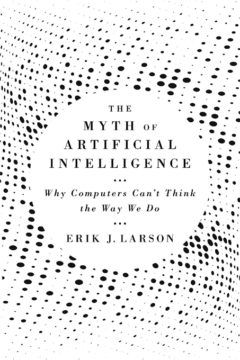William Hasselberger at The New Atlantis:
 To be even remotely plausible, a computer model of the human mind must warp — and restrict — our commonsense definitions of intelligence, knowledge, understanding, and action. Larson discusses the renowned computer scientist Stuart Russell, who defines intelligence as simply the efficient pursuit of objectives, based on inputs from the environment. An “intelligent agent,” says Russell, is just a physical “process” whereby a “stream of perceptual inputs is turned into a stream of actions” to achieve a predefined “objective.” As Larson wryly notes, this definition “covers everything from Einstein ‘achieving’ his ‘objective’ when he reimagined physics as relativity, to a daisy turning its face toward the sun.” It places intelligent human activity on the same spectrum as Venus fly traps and shrimp; the difference is merely a matter of complexity.
To be even remotely plausible, a computer model of the human mind must warp — and restrict — our commonsense definitions of intelligence, knowledge, understanding, and action. Larson discusses the renowned computer scientist Stuart Russell, who defines intelligence as simply the efficient pursuit of objectives, based on inputs from the environment. An “intelligent agent,” says Russell, is just a physical “process” whereby a “stream of perceptual inputs is turned into a stream of actions” to achieve a predefined “objective.” As Larson wryly notes, this definition “covers everything from Einstein ‘achieving’ his ‘objective’ when he reimagined physics as relativity, to a daisy turning its face toward the sun.” It places intelligent human activity on the same spectrum as Venus fly traps and shrimp; the difference is merely a matter of complexity.
Among other things, this ignores the reflective aspect of human intelligence — how we discover, imagine, question, and commit to our objectives in the first place, the judgments we make about which objectives really matter in life, and which are trivialities, distractions, irrational cravings.
more here.
